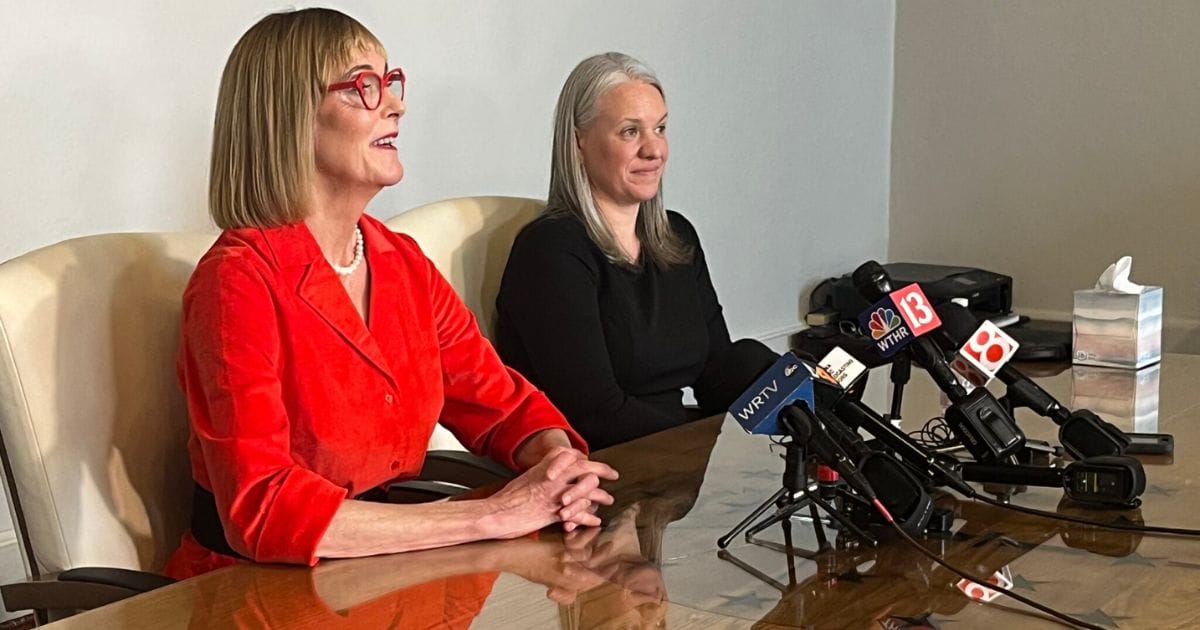LT. GOV. SUZANNE CROUCH, a candidate for governor, criticizes FSSA’s proposal to cut attendant care for families in a press conference with Melanie Kandzierski. (Whitney Downard/Indiana Capital Chronicle
Lt. Gov. Suzanne Crouch called for an independent, outside audit of the Family and Social Services Administration (FSSA) following a $1 billion Medicaid overspend that triggered a review of agency programs during a Tuesday press conference.
After announcing the shortfall, FSSA identified $300 million in program cuts, one of the largest being an attendant care program for parents of medically complex children.
“It’s extremely important that the $1 billion error that FSSA made is not put on the back of these children and families,” Crouch said. “We need to ensure moving forward that they get the care that they need and deserve … being able to take care of these children is absolutely a critical need for the state of Indiana.”
Crouch is running for governor on the promise to “axe” the state’s income tax, a proposal that could involve cuts to programs like Medicaid. She didn’t answer a question Tuesday, February 6, 2024, about how she reconciled her platform to restore Medicaid spending with those tax cuts.
Her announcement comes on the heels of her call last week for FSSA to pause the proposed changes, which both the General Assembly and Gov. Eric Holcomb rebuffed. She sidestepped a question about her communication with the executive branch, instead asking why they killed FSSA’s agency bill.
The press conference featured South Bend mother Melanie Kandzierski and her 3-year-old daughter Rosie, who has Dravet Syndrome, a rare seizure disorder. She said attendant care for Legally Responsible Individuals allows Kandzierski and her fiancé to care for her daughter 24/7 during a statewide nursing shortage.
“Quite often, I can administer rescue medications quicker than the medical team at the hospital,” Kandzierski said. “Providing round-the-clock care for Rosie is a responsibility that we wholeheartedly and willingly embrace … without support, we cannot provide the care required to ensure these children have the highest quality of life.”
For the agency evaluating service cuts, she had stronger words.
“It’s also time to remind the FSSA that medically complex children are not scapegoats for their budgetary incompetencies,” Kandzierski said.
The agency’s suggested pivot to Structured Family Caregiving, she said, wouldn’t suffice when it came to covering all of the care Rosie needed.
FSSA defended the cuts last week, noting that the program grew from $20 million in the summer of 2020 to $120 million in December 2023 following increased uptake and rate increases.
“We want to create a sustainable path for parents and spouses to support the waiver member and, going forward, our plan is that will be via structured family caregiving and not via attendant care,” said Kelly Mitchell, FSSA’s director for the division of disability and rehabilitative services.
This article originally appeared on Indiana Capital Chronicle.






